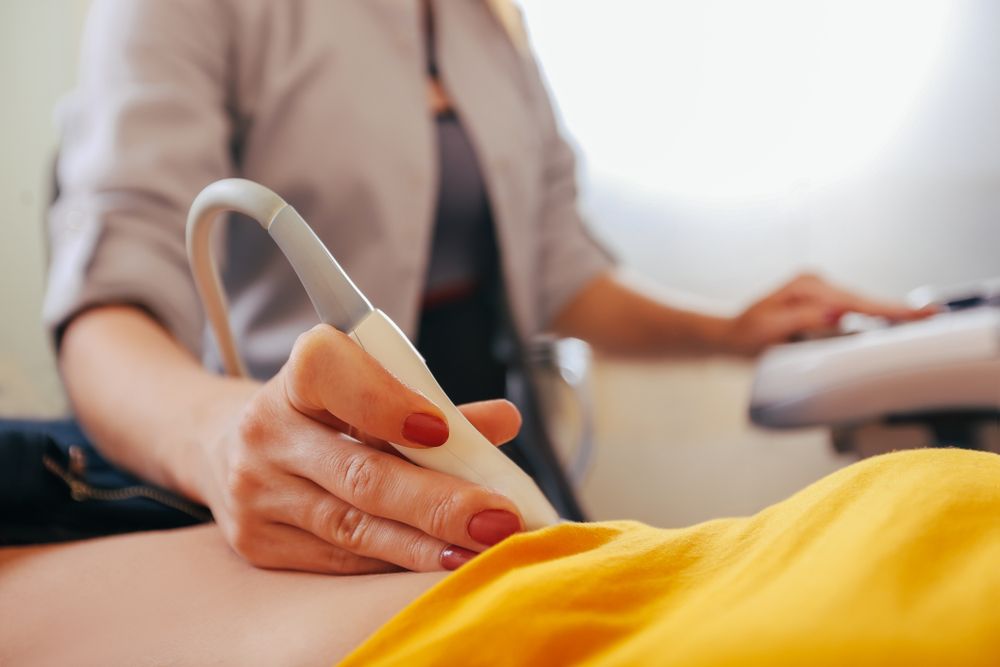Ultrasound
Ultrasound of the Abdomen and SWE Preparation Instructions

What is it?
An abdominal ultrasound uses reflected sound waves to produce a picture of the organs and blood vessels in the upper belly. These include your liver, gallbladder, spleen, pancreas, kidneys, and major blood vessels like the aorta. The sound waves create a picture on a video monitor.
Why is this test done?
- Check for problems in the liver including mass or other abnormal factors.
How can you prepare for the test?
- Arrive 10 minutes before your appointment time.
- Avoid eating for 8 hours before the test.
- Drink water and take medication according to your schedule. No solid food.
- Tell the technician if you eat anything by mistake.
How is the test done?
- You lie down on your back or your side on an exam table.
- The technologist spreads some warm gel on your belly to improve the transmission of the sound waves. A small handheld unit called a transducer is pressed against your belly and is moved back and forth. A picture of the organs and blood vessels can be seen on a video monitor.
- You need to lie still. You may be asked to take a breath and hold it for several seconds during the scanning.
How does having an abdominal ultrasound feel?
Most people do not feel pain during the test. If your belly hurts already from an injury or illness, the slight pressure from the transducer may be somewhat painful. You will not hear or feel the sound waves.
How long does the test take?
- The test will take about 30 minutes.
- You may be asked to wait until the radiologist has reviewed the scan. He or she may want to do more ultrasound views of some areas of your belly.
What happens after the test?
- you will probably be able to go home right away.
- You can go back to your usual activities right away.
Follow-up care is a key part of your treatment and safety.
Your doctor will discuss your ultrasound result with you on your next follow up appointment.
Be sure to make and go to all appointments, and call your doctor if you are having problems. It's also a good idea to keep a list of the medicines you take.
